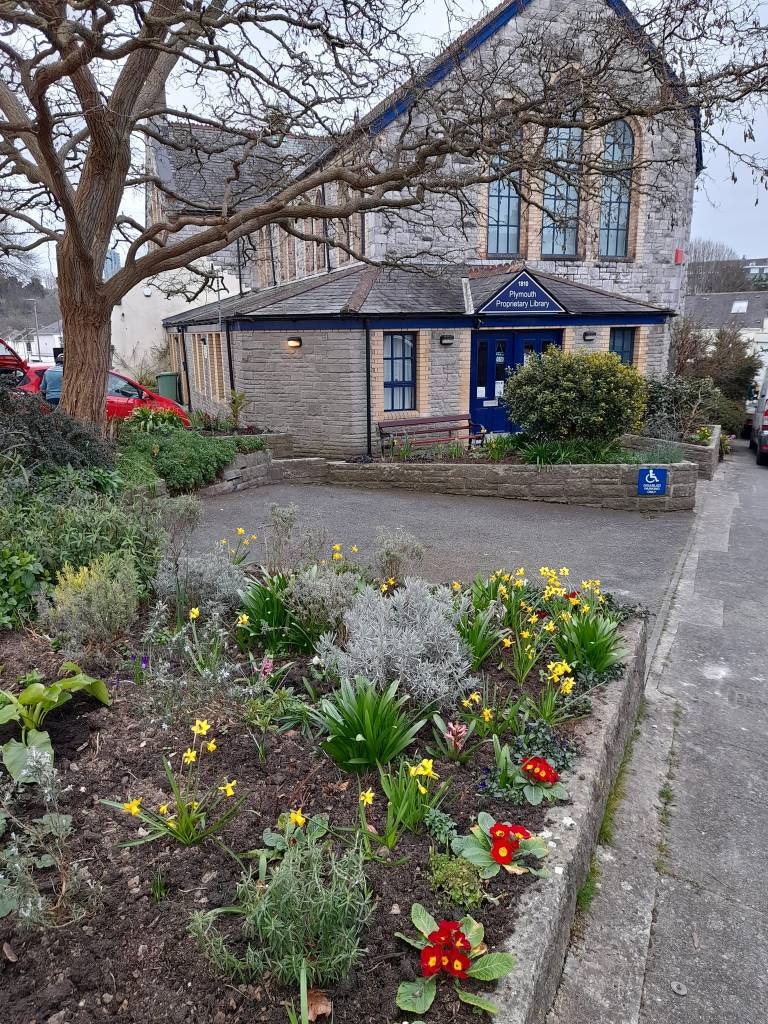by Darren Bevin
Chair, CILIP SW.
The CILIP South West AGM and Professional Development Day took place on 10th April in the Rougemont Room at Exeter Central Library.

The previous AGM took place only last November and had been solely online. Looking ahead to future meetings, it was felt that there would be more chance of a venue being available around Easter (for example, at a University setting).
The event in April had both speakers and an audience who were online and in person. Attendees were equally split with twenty in person and another twenty on Zoom. The talks took place after the AGM and centred around the themes of welcome and access.
The first to speak was Sonia Ramdhian, the Director of Sector Development at CILIP, who provided a short introduction to the day’s themes. This was followed by Kay Ecclestone, Vice-Chair of CILIP SW who spoke on her involvement and work with the Peninsula of Sanctuary movement. This was the first cross-sector project in the country and offered free training, created a Resource Bank and gave access to an online Forum for library staff interested in improving their welcome to new arrivals and refugees. Kay engaged the audience both in the room and online with a quiz accessible via a QR code that challenged assumptions and knowledge on the refugee situation in the UK. Results of the multiple choice questions were screened live.
This was followed by Lara Marshall (via Zoom), the Library Engagement Manager for the Royal National Institute of Blind People with her talk: ‘See Differently: How to Make Your Library More Accessible to Blind and Partially Sighted People’. Her detailed talk on the equipment and technology available followed an interactive discussion on common sight loss misconceptions and simple but effective ways to interact and offer the best customer care to blind and partially sighted library users.

After lunch, Emma Laws (above), the Exeter Cathedral Librarian, gave us “ ‘… much visited by the curious …’ 1000 years of Exeter Cathedral Library and Archives”. Housed in the West Wing of the Bishop’s Palace in Exeter Cathedral is a modern library and archive facility in which are preserved and made accessible to the Dean and Chapter’s many thousands of books and documents, which span the 10th to the 21st centuries. Emma kindly tailored her talk to cover themes of welcome, access and outreach that addressed issues of conservation and preservation alongside the desire to make the contents of the library available.

Finally, Sarah Gosset (above), the Librarian for Families and Outreach at North Somerset Council discussed the challenges when reaching out to Gypsy, Roma and Traveller communities. These stemmed from a variety of barriers on both sides, ranging from location and literacy levels to mistrust of authority. North Somerset Council have been working to engage this community and to show that libraries are a space and resource for everyone, regardless of background.
CILIP South West would like to thank everyone who attended this event, especially those who presented, and also to Exeter Central Library for hosting this event and providing refreshments. Particular thanks must go to Callum Elliott-Archer, the Centre Manager, for his support throughout the day and overcoming the challenges of a hybrid programme to ensure the day ran smoothly. Our aim is to find another venue next year in a different south west county that can support a hybrid event.










